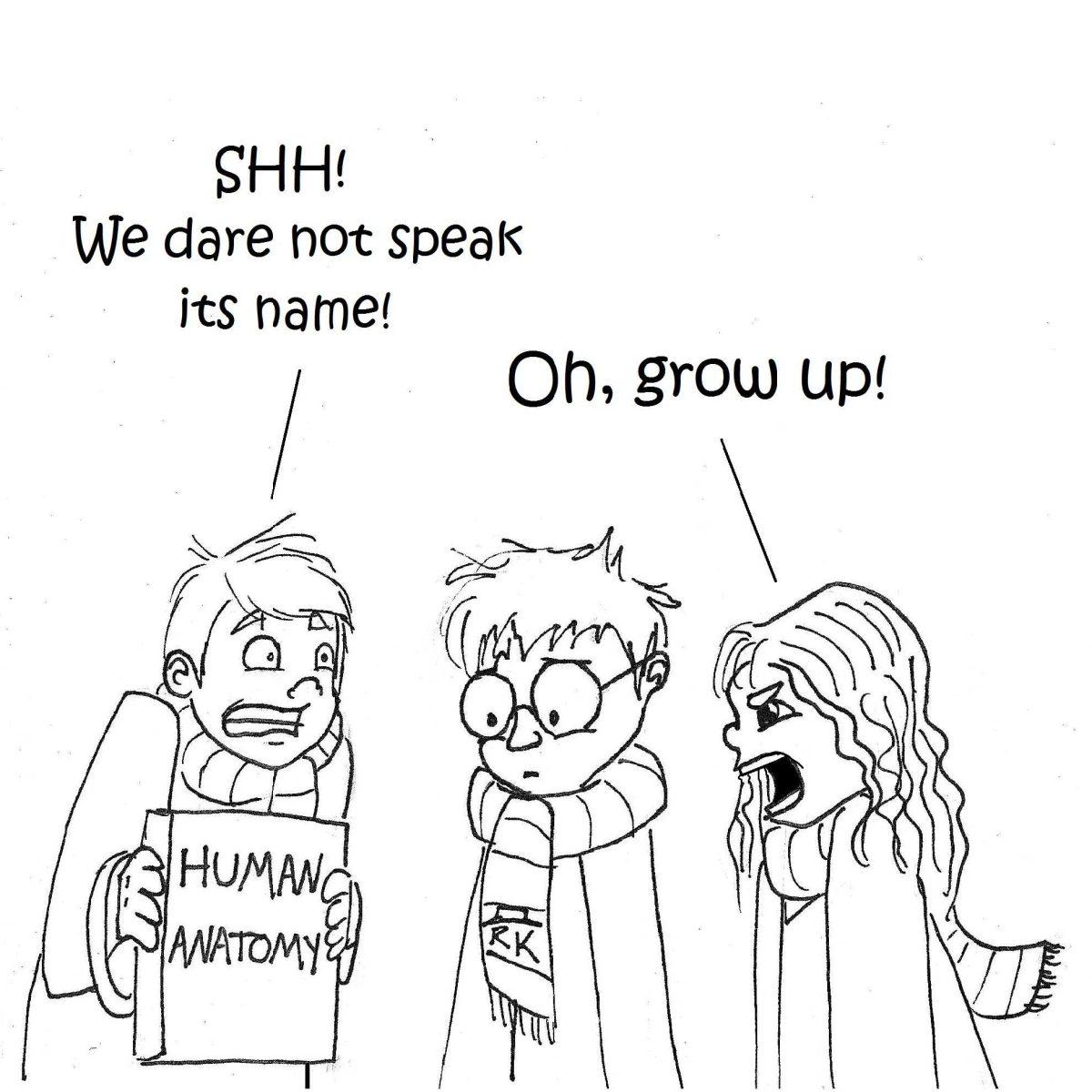Teenage pregnancy is at an all time high. Sexually transmitted diseases are out there, and they are dangerous. Birth control is only 90 percent effective. The list goes on and on.
Our biology teachers drilled it into us during sex ed, when they showed the “Miracle of Life” video and we tried to situate ourselves so that the head of the football player in front of us blocked what was happening between the woman’s legs.
Sex ed was undoubtedly the most interesting and uncomfortable six weeks of 10th grade, and it has become a rite of passage for the American teenager.
Hermione Granger spoke the infamous words, “Fear of the name only increases fear of the thing itself.”
And that’s exactly our problem. We fear that talking about sex will ruin our innocence, so we don’t talk about it – at all.
It’s a three letter, one syllable word. It has no power over us, unless we give it power.
Admit it, you have, at one time or another, looked up sex in a dictionary. You were
probably in English class, listening to a teacher drone on about present progressives that modify some adverb, and then the idea struck you.
Reaching under the desk, you pulled up the big blue student dictionary. Stealthily, your finger tabbed down to the words beginning with S. Scanning the page, your eye finds it:
“Sex [seks]- (noun) Sexual activity, including specifically sexual intercourse.”
Of course that is when your teacher chose to walk up the aisle and you flipped the page, playing it cool as you pretended to be enthralled over the definition of “silicon” or “sonnet.”
But why is this curiosity shamed? If knowledge is power, shouldn’t we be armed with the facts and figures to make our way through a society that is dousing us with sexual influences left and right?
Sex Positive blogger and host of the Youtube channel Sex+, Laci Green, recently dove into the subject of sex education in America, outlining its changes throughout history.
In the 1940s, the push for sex education was strong and teachers were required to be certified to teach medically accurate sex education courses. This was until the 1960s, when conservative
family groups called sex
education in schools a “filthy communist plot” against America by the liberals and the homosexuals.
From that point on, “Abstinence Only” sex education was the favored method in American public school systems, teaching fear and scaring teenagers into keeping their virginities.
I don’t have to tell you how effective that has been, just ask the 30 percent of females who will become pregnant before their 20th birthday.
Keep in mind, these were parents who didn’t want to have an uncomfortable talk in which their 8 year old asks what testicles or labia are.
I’m not saying that we should swap tips and tricks over wine coolers with our parents.
But if your parents still spell the word out in front of you the way my mother did until I was 18, something should change.
Sit down with your parents. Explain to them that you are a young woman or man who has been going through changes. Tell them that it is natural and a crucial part of growing up.
Let them know that you understand the risks and preventative measures involved with being sexually active. Maybe throw in a anecdote or two about your sexual history.
Most importantly, let them know that you want them to be available to you for guidance. They are your parents, after all.
If no one else has, let me be the first to tell you that sex is not a shameful desire embedded in the human heart to destroy America’s moral code. It should be celebrated, treated with respect, and most importantly, talked about openly.
So, LSU, let’s do it. Let’s talk about sex.
Jana King is a 19-year-old women’s and gender studies sophomore from Ponchatoula, La.
Opinion: Talking about sex with parents helps sexual health, safety
By Jana King
November 25, 2013
Anatomy with Parents





